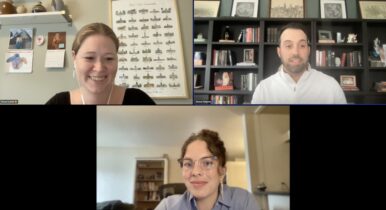Facebook Continues Shift Away From Political As Consultants Plot Alternatives
As Facebook tries to back away from political content, political consultants are starting to plot alternatives. Read this article to find out what they are.
Facebook on Wednesday confirmed that it will begin de-populating political content from some of its users’ News Feeds in the coming days.
The experimental approach will start this week with users in Canada, Brazil, and Indonesia and then move on to American users in the coming weeks.
“During these initial tests we’ll explore a variety of ways to rank political content in people’s feeds using different signals, and then decide on the approaches we’ll use going forward,” Aastha Gupta, Facebook’s product management director, wrote in a blog post.
The move comes after Facebook CEO Mark Zuckerberg said during the company’s 4th quarter earnings call last month that they’d heard feedback from users that they wanted less political content — even as political advertising remains “paused” on the platform.
For digital consultants, the latest news is just confirmation that diversification beyond Facebook is a strategic imperative — even as the prime audience for political marketing continues to be the company’s user base.
“Right now, the smart thing for us to do is to strategize for ads, but plan as if they’re not going to be around,” Democratic digital consultant Beth Becker recently told C&E in a video interview.
Becker added that campaigns can’t ignore organic content on the platform because “the audience is still there,” but suggested campaigns actively look to other platforms for paid. “I think Snapchat is still a viable platform,” she said.
Henri Makembe, the newly installed CEO of Democratic digital firm Do Big Things, said that Facebook needs to remain part of the toolkit.
“The authenticity piece has to become even more important,” he said. For instance, campaigns and groups need to connect with voters “directly,” and ideally get them to share content with their own followers — similar to the influencer model that the Biden campaign used in 2020.
“What the Facebook ban shows is that it became the default for a lot of folks when it shouldn’t have been. There are other platforms that could have been used appropriately, but weren’t,” Makembe said. “Yes, Facebook is the big elephant in the room, but it’s not the only elephant in the room.”
His shop has found a “decent match rate on other platforms,” and pointed to Pandora as a tool to reach communities of color.
“There’s no easy fix. It’s going to take some experimentation, depending on where the client is. One thing that is clear is that if your underlining digital infrastructure is not sound, it’s going to be hard to pivot.”
As for the ultimate impact of Facebook’s latest move, Becker points out the platform was already limiting some political content before the last election by virtue of the platform’s last algorithmic News Feed change. The one thing she said would make a big difference here is if the platform directly targeted shares: “If Facebook says ‘if someone shares a page or a piece of content that’s political, then we’re going to reprioritize that.’ That’s a whole new ballgame.”


